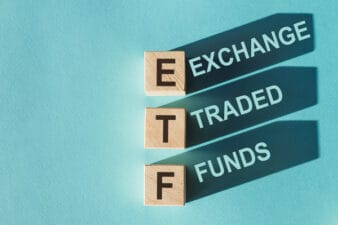Both Suncor Energy Inc. (TSX:SU)(NYSE:SU) and Imperial Oil Ltd (TSX:IMO)(NYSE:IMO) are great companies — don’t get me wrong.
And both play a critical role in Canada’s oil sands, one of the largest oil reserves found anywhere in the world, and as such, they will more likely than not do you well as an investment — even very well — over the long term.
But over the long term, your returns are going to be compounding, and the impact of compounding over time can be absolutely astonishing.
Take, for example, an investment of $10,000. If that investment were to return 10% every year, 20 years from now that $10,000 investment would grow to $67,275 — not bad at all. But if that same investment were to return you at 15% instead, your $10,000 investment would, over 20 years, grow to $163,665.
That’s well over twice as much money as you would have earned under the first scenario.
So, it’s certainly easy to see how it pays to buy not just good, not even great, but the very best companies to put in your long-term savings accounts like your TFSA or even your RRSP.
With that in mind, let’s take a look at what characteristics make Suncor the superior long-term play as compared to integrated energy peer Imperial Oil.
Superior track record of growth
Simply put, if you want to make money from your investments, you had better expect that the company you are investing in is going to be significantly bigger than it is today in five, 10 and 10 years’ time.
But while top lines, or sales growth, get a lot of attention in the headlines, its actually the bottom line, or net profits, that provide a company with the money it needs to reinvest in itself and pay distributions to shareholders, be it in the form of share buybacks or dividends.
Suncor has a far better track record in this regard than Imperial Oil.
Despite being plagued by lower oil prices since 2014, Suncor has averaged a 10% compound annual growth rate in its net income over the past five years.
It’s not even close when comparing Suncor’s performance to Imperial Oil — its profits in 2017 were only a fifth of where they were five years ago in 2012.
Superior profitability
Part of the reason why Suncor has been able to maintain its pace of growth — particularly in light of lower prices for crude oil — is a superior ability to keep costs in check and control expenses.
Since 2012, Imperial Oil has seen its operating margin fall from 15% to 11% to 6% to a little more than 1% in 2017.
But the story is much different over at Suncor, where in 2017 the company recorded an operating margin of 16%, which was actually 3% higher than the 13% it recorded in 2012.
Better returns for shareholders
This is where the rubber meets the road, as the money you make on your investment is literally going to be determined by your returns as a shareholder.
Once again, it’s not even a contest between these two energy producers. Suncor has returned shareholders 12% on average over the previous 15 years compared to Imperial Oil, which has perennially underperformed the market, returning investors just 8% per year.
A lot of that outperformance has been driven by the superior nature of Suncor’s dividend.
While Imperial Oil pays a dividend yield of just 1.71% today and hasn’t increased its payout since 2013, Suncor offers investors not only a higher yield at 2.95%, but also a better track record of raising its payout, including 10 consecutive years of dividend increases.
Bottom line
There are still reasons to like Imperial Oil as an investment, particularly the idea that it has been underperforming the market.
There are some that like to follow a “contrarian” investment philosophy that buys what others are selling — here, Imperial Oil fits the bill perfectly.
But for my money, if I’m going to make a significant investment towards my retirement or savings account, I’m going to sleep a lot better at night with my capital in the hands of Suncor and not Imperial Oil.








